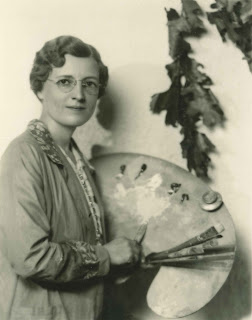2002 North Main Street
Santa Ana, California 92706
TEL: 714.567.3600
Dusk | Dawn
 |
|
Evening on the River, 1883
George Inness (American, 1825-1894)
Oil on canvas; 33 3/4 x 48 x 3 in.
F7664
Martha C. Stevens Memorial Art Collection
|
Sunset: 2017 Ends
 |
| Twilight, c. 1860
George Inness (American, 1825-1894)
|
Every day comes to day’s end. In this twilight painted rivers, seas and skies—aching with shades of red, violet, and orange—all contest the inevitable darkness falling over this sprawling body on which we live. George Inness (American, 1825-1894) was one of the most prominent landscape painters of the 19thCentury: capturing this beautiful dying light was his highest ambition. Inness began his career in his late teens. Early in his life he found inspiration in the works of Hudson Valley painters, particularly those of Thomas Cole and Asher Durant from which Inness developed his penchant for romanticizing the American wilderness. With a decade of experience already under his belt, in 1851 Inness traveled to France to informally study and soak up the stylings of the Barbizon School as if by osmosis. This proved very effective, and led to Inness adding his own distinctly American dash of Tonalism to the European movement. When Inness painted Twilight (1860) he used only shades of red, brown and black. Friedrich Church’s own Twilight in the Wilderness was painted in the same year and is simultaneously incredibly similar and dissimilar. Finding commonality in the subject, which by itself could almost be the same painting, but becoming distinct in the far more varied palette Church used to paint the scene.
Evening on the River (1883), of course, also depicts this most intimate subject matter for Inness. The marsh as well as the painting’s palette which can be compared to Inness’ Home of the Heron (1893) seem to indicate that this was painted in Tarpon, Florida where Inness spent the winters of his final years. It has been noted that none of his landscapes painted after Twilight were ever quite as dramatic. Almost as if a filter has been turned on, we can see in Evening on the River that the rich tenebrism of his earlier scenes has given way to more muted greens and yellows. Perhaps Inness himself recalled this change in his final moments. In an 1894 trip to Scotland, George Inness was studying the sunset when he suddenly cried, “my God! Oh, how beautiful!" and crumpled to the ground dead.
 |
|
Sunrise on the Pacific, 1920-1922
Evylena Nunn Miller (American, 1888 – 1966)
Oil on board; 10 x 14 in.
31804.11
Evylena Nunn Miller Memorial Collection
|
Sunrise: 2018 Begins
 |
| Evylena Nunn Miller, date unknown. |
Every day carries with it the promise of something new and exciting. Morning’s first light brightens landscapes with signature pastel colors. Evylena Nunn Miller (American, 1888-1966) found these promises enthralling. She was born in Kansas in 1888 and in the early years of the 20thCentury came to California with her family. Here she studied painting in college and went on to become a pivotal figure in the local art scene. The prevailing Southern California art movement at the time, Plein Air, became her passion. When she was not actively promoting the arts, Evylena spent the rest of her life journeying to reservations, national parks, and across the world itself to take in new sights, paint them and write stories about her exploits. In 1920, she travelled across the Pacific Ocean to Japan where she spent two years teaching at a boy’s school. Sunrise on the Pacific was painted as one of the views home from this period abroad. It seems to foreshadow what would be a promising return to Southern California.
Almost all of Evylena Nunn Miller’s paintings were made by applying oil paints to a board with a palette knife. The result of the medium is a heavily textured surface, perfect for capturing light bouncing off the waves of the ocean or weightless clouds suspended on the horizon. Unlike Inness, her color palette and subjects varied greatly. Though Miller did return again and again to some of her favorite subjects, vistas spanning Japan’s snow-covered pagodas to sun-bathed Taos, New Mexico pueblos and Sunrise on the Pacific quite literally in-between all show that something new as a sunrise was always just around the corner for her.
For Auld Lang Syne and What’s to Come
With 2017 winding to a close and 2018 ready to spring upon us, perhaps we can learn from both Inness’ ability to romanticize the ebbing twilight and Miller’s ability to capture the flowing light of new and brilliant things.
Happy New Year!
Text and images may be under copyright. Please contact Collection Department for permission to use. Information subject to change upon further research.
Tags:

Comments